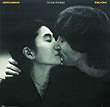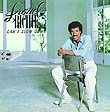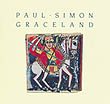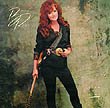
|
|
|
of the Year | |||||||||||||||||||||

| Christopher Cross' catchy blend of pop and rock propelled him to the biggest GRAMMY sweep ever by a new artist. Cross, 29, took home five awards, including Album of the Year, Record of the Year and Song of the Year. He won the latter two GRAMMYs for his hit ballad, "Sailing." The Texan capped his unforgettable night by winning for Best New Artist. Michael Omartian produced Cross' hit-studded album. |
1981...John Lennon and Yoko Ono/Double Fantasy
| John Lennon ended a six-year sabbatical in 1980 with the release of this warm pop album, which featured seven of his songs and seven by his wife, Yoko Ono. Lennon, 40, and Ono, 49, teamed with Jack Douglas to produce the album, which included such reflective songs as "(Just Like) Starting Over" and "Watching The Wheels." Tragically, two weeks after the album's release, Lennon was murdered outside his apartment in New York. GRAMMY voters honored Lennon's memory by naming Double Fantasy Album of the Year. It's the only time the award has been given posthumously. In 1991, the academy's trustees voted Lennon a Lifetime Achievement Award. |

|
1982...Toto/Toto IV

| Though never a favorite with critics, Toto brought home three GRAMMYs--Album of the Year, Record of the Year and Producer of the Year. David Paich and Jeff Pocarro, the leaders of the Los Angeles group, also won for their arrangement of the smash hit, "Rosanna." The album's other hits included "Africa" and "I Won't Hold You Back." |
1983...Michael Jackson/Thriller
| Michael Jackson won a record eight GRAMMYs in 1984--seven for his work on "Thriller," the most popular album of all time. Jackson's haul included Album of the Year, Record of the Year and Producer of the Year, which he shared with his co-producer, Quincy Jones. Jackson, 25, also won male vocal honors in pop, rock and R&B. Thriller spawned an unprecedented seven Top 10 singles, including "Billie Jean" and "Beat It." Jackson received a GRAMMY Legend Award in 1993. |

|
1984...Lionel Richie/Can't Slow Down

| Former Commodores front-man Lionel Richie had an "outrageous" night in 1985, when his second solo album was voted Album of the Year. Richie, 35, and his partner, James Anthony Carmichael, also won as Producer of the Year. Can't Slow Down yielded five Top 10 hits, including "All Night Long (All Night)" and "Hello." |
1985...Phil Collins/No Jacket Required
| For the third year in a row, the award for Album of the Year went to a solo star who had stepped out from a popular group. Phil Collins' third album away from Genesis brought him two other GRAMMYs: Best Pop Vocal Performance, Male, and Producer of the Year, which he shared with his co-producer, Hugh Padgham. No Jacket Required spawned four Top 10 hits, including "One More Night" and "Sussudio." |

|
1986...Paul Simon/Graceland

| This modern classic made Paul Simon the third artist--following Frank Sinatra and Stevie Wonder--to win Album of the Year three times. Of these three artists, Simon has the longest span of victories--16 years. Simon, 45, self-produced the album, which spawned the hit "You Can Call Me Al." In a GRAMMY first, the title song was named Record of the Year the following year. |
1987...U2/The Joshua Tree
| U2 became the first act associated with the alternative rock scene to win for Album of the Year. The Joshua Tree won a second award for Best Rock Performance by a Duo or Group with Vocal. Daniel Lanois and Brian Eno produced the album, which included the #1 hits "With Or Without You" and "I Still Haven't Found What I'm Looking For." |

|
1988...George Michael/Faith

| George Michael's first album following his departure from Wham! is the only solo debut ever to be voted Album of the Year. Michael, 25, was only the third solo artist--following Stevie Wonder and Paul Simon--to entirely self-produce a winning album. Faith spawned four #1 hits, including "Father Figure" and "One More Try." |
1989...Bonnie Raitt/Nick Of Time
| Raitt's warm, contemplative Nick Of Time owed much of its success to its three-GRAMMY sweep in 1990. The exposure enabled the album to became a best-seller even thought it never produced a Top 40 single. Raitt, 40, also won female vocal honors in both pop and rock. Don Was produced the album. |

|
Copyright ©1998 The Recording Academy, Copyright ©1998 Yahoo!
Questions? webcast@grammy.com